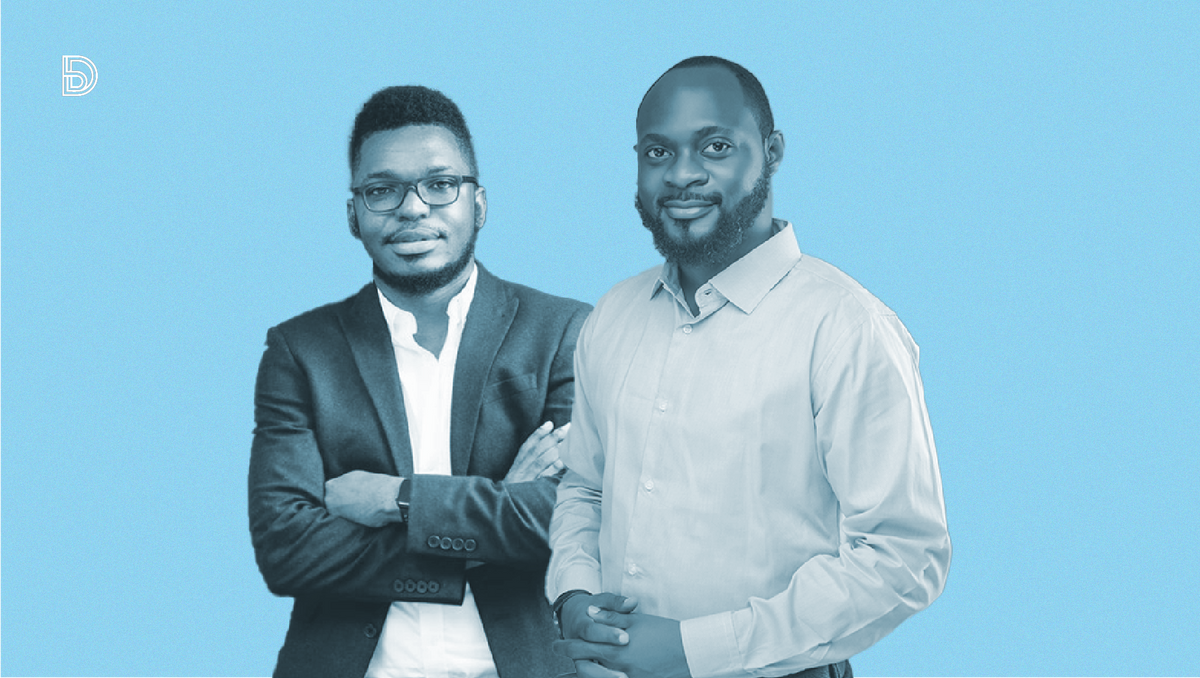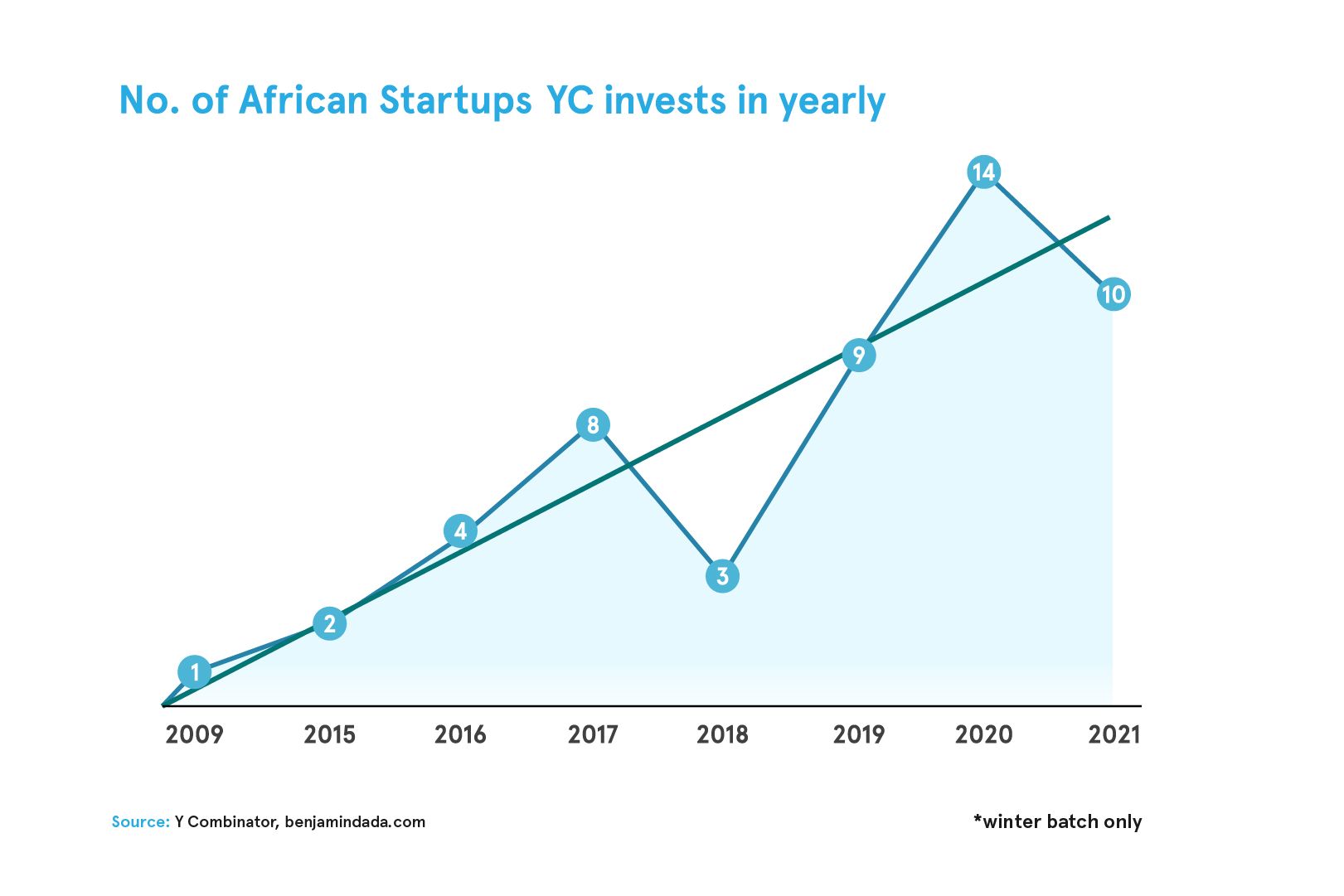Getting into YCombinator as an African founder
We applied to Ycombinator three times before acceptance - and what made us successful was our ability to articulate the problems we were solving and the opportunities therein.

Getting into Ycombinator (YC) has become like winning the heat race before the 100m Olympic finals for African startups.
Just like the runners, it doesn't mean the startups will be successful, but it is an indicator that they stand an excellent chance.
In 15 years of backing startups, only 20% of the companies backed by Ycombinator have failed - an excellent number per industry standards.
While YC itself may not impart any special knowledge on the startup founders that make it in, the process of getting in may be why it has such a good track record. It is rumoured that only 1.5% of the startups that apply get into YC's Winter or Summer accelerators.
With so few companies scaling through, the companies that get in are typically the ones most primed for success. It is believed that Investors are most likely to fund startups that pass through YC.
How African startups have fared at YC
So far, YC has invested in 51 African startups, starting with its first investment in 2012 in Wave. Those 51 African startups represent less than 2% of Y Combinator’s portfolio, making it one of the least favoured regions for investment by the accelerator.
After Petasales in 2009, no African startup made it into YC’s accelerator until Kenya’s Saida and Senegal’s Oolu in 2015. However, since 2015, African startups have made it into every cohort of the accelerator.

Since the 6-year YC drought, YC’s investments in African startups have had an increasing trend with the numbers peaking in 2020 with 14 investments on the continent.
In 2021, the Winter cohort saw 10 startups receive membership into the exclusive club of the YC alumni. The Summer cohort should see more startups join them.
When it comes to destinations, Nigeria appears to be the favourite destination for YC investments. 27 of the 51 investments (~51%) are from Africa’s largest country by population. The second-favourite destination is Egypt with 8 startup investments (16%).
For industries, YC appears to have an affinity for Fintech startups. The Silicon Valley-based accelerator has invested in 18 African fintech companies, representing 35% of its African portfolio. B2B Software-as-a-service (SaaS) companies comprise the second most-favoured category with 14 (27%) investments so far.
YC’s investments have generally fared well on the continent. Only three are inactive at the time of publishing - PetaSales, Passerine Aircraft, and Tress. Paystack, which made it to the class of 2016 got acquired by Stripe, another YC company, for $200 million in 2020. Flutterwave, another Nigerian YC company from the 2016 class became a unicorn in 2021 after it raised a $170 million series C.
Getting into Y Combinator's accelerator
There are three ways to get into YC. Applicants can either apply as a startup or non-profit or recommend a startup for YC. But, there are a few things applicants have to get right before applying.
According to Paul Graham’s ‘How to Apply to Y Combinator’ essay, the biggest thing applicants miss during the application process is the art of expression. Founders who apply to YC need to be concise enough to convey a clear picture of their offering.
“Every year we get some applications that are obviously good, some that are obviously bad, and in the middle a huge number where we just can’t tell. The idea seems kind of promising, but it’s not explained well enough for us to understand it. The founders seem like they might be good, but we don’t get a clear enough picture of them to say for sure.” - Paul Graham
The summary of the excerpt is, that startups will not scale through the application process if they fail to articulate their product offering. The article advises that applicants avoid ‘marketing-speak or using technical jargon to pass information.’
“So don’t begin your answer with something like; we are going to transform the relationship between individuals and information. That sounds impressive, but it conveys nothing. It could be a description of any technology company. Are you going to build a search engine? Database software? A router? I have no idea,” - Paul Graham.
Instead of going the marketing-speak route and ending up communicating nothing, applicants should be clear and direct. Say things like ‘we are a database with a wiki-like interface, combined with a graphical UI for controlling who can see and edit what.’ This gives the application reviewer an insight into what your product is all about.
However, there is a need for startups to know their product inside out before applying to YC. Proper communication requires adequate knowledge.
In our conversation with Tunde Kara, the Co-founder/CEO of Vendease, a YC ‘W21 startup, he mentioned the application process as the most challenging phase of application. According to him, “You’re not sure if your written pitch will stand out from the other applications.”
When we asked him why he thinks his pitch stood out, he said it was because he could prove that his product could solve the problem.
Ife Oyedele II, the Chief Growth Officer for Kobo360, also told us that their most challenging phase of the application was before applying to YC. According to him, they had to ensure their business was sustainable with a well-thought-out plan. Ife said YC rejected them twice.
He said, “Getting into YC is pretty challenging for any startup, but especially for an African-focused one. The most challenging phase of the application was actually before applying to YC; we had to make sure that our business was sustainable and we could articulate our plans to bring Kobo360 to unicorn status.
We actually applied three times before we eventually got accepted. The application itself helped to clarify the vision we had for our company.”
According to Ife, YC accepted them the third time because they could clearly state the problems they were solving. "As mentioned earlier, we applied to Ycombinator three times before acceptance - and what made us successful was our ability to articulate the problems we were solving and the opportunities therein.”
Tunde and Ife’s comments align with Lyn Chen, co-founder, and COO of LayerCI, a YC S20 startup’s essay on ‘How to get into Y Combinator: application tips from the founders of LayerCI.’
According to her essay, she applied twice before getting into YC. Lyn listed some questions startups should answer before applying. They include;
- Product: What are you building?
- Traction: How do we know people want it?
- Founders: Why is your team special?
- Why now: What's your unique insight? Why build this thing now?
- Market sizing: Based on your current business model, is there a clear path to $1M? What about $100M?
- Red flags: Any immediate IP or founder dynamic issues? Is the cap table "clean"? Is there some key trend in the market that makes this a bad business idea?
Is the YC accelerator programme worth applying for?
Absolutely!
YC recently published a list of its top active investments. The list showcased up to 130 startups with a minimum valuation of $150 million. The combined valuation of all companies on the ‘top investments list’ stood at over $300 billion and these companies have created over 60,000 jobs.
Among YC's successes are Airbnb, Stripe, Dropbox, Reddit, and Coinbase. In Nigeria, the Silicon Valley-based accelerator can count fintech giants, Flutterwave and Paystack among its successful investments.
Speaking of his YC experience, Tunde Kara of Vendease said, "YC is a demanding family and friend’s community. It forces you to be your absolute best self.”
Ife Oyedele II of Kobo360 said, “YC gave us access to great mentors as well as networking opportunities with other innovative startup founders from across the world who were accepted into the same cohort as us in ‘S18.
Additionally, we spent three months in Silicon Valley with other successful entrepreneurs who had gone through the program and were able to have access to real and honest advice, which we then applied to our business model.
We were pushed to clarify our model, build our customer base and examine how our technology was genuinely going to make an impact. After the program, we received the working capital we needed to plan our expansions to Togo, Kenya and Ghana as well as introduce new verticals under the Kobo brand.
Being a part of YC solidified our brand, not only in terms of international exposure but also as a great contender in the African logistics industry."
Advising other African founders that would love to get into YC, Tunde advised that they bring their own special innovation to solving a problem.
“Know your business and users better than anyone else. Bring your own special innovation or twist to solving the problem. Also, prove you can solve the problem by getting traction,” he said.
Ife on the other hand advised the founders to consider going global. “My advice would be to think long-term and think about the bigger picture. At the time we applied, we were only a small startup in Nigeria but we were able to narrate where we wanted to take our business - across the African continent and across the world.”
Editor's Note: Wave was the first YC-backed startup from Africa, not PetaSales. We have updated this article to reflect this.








Comments ()